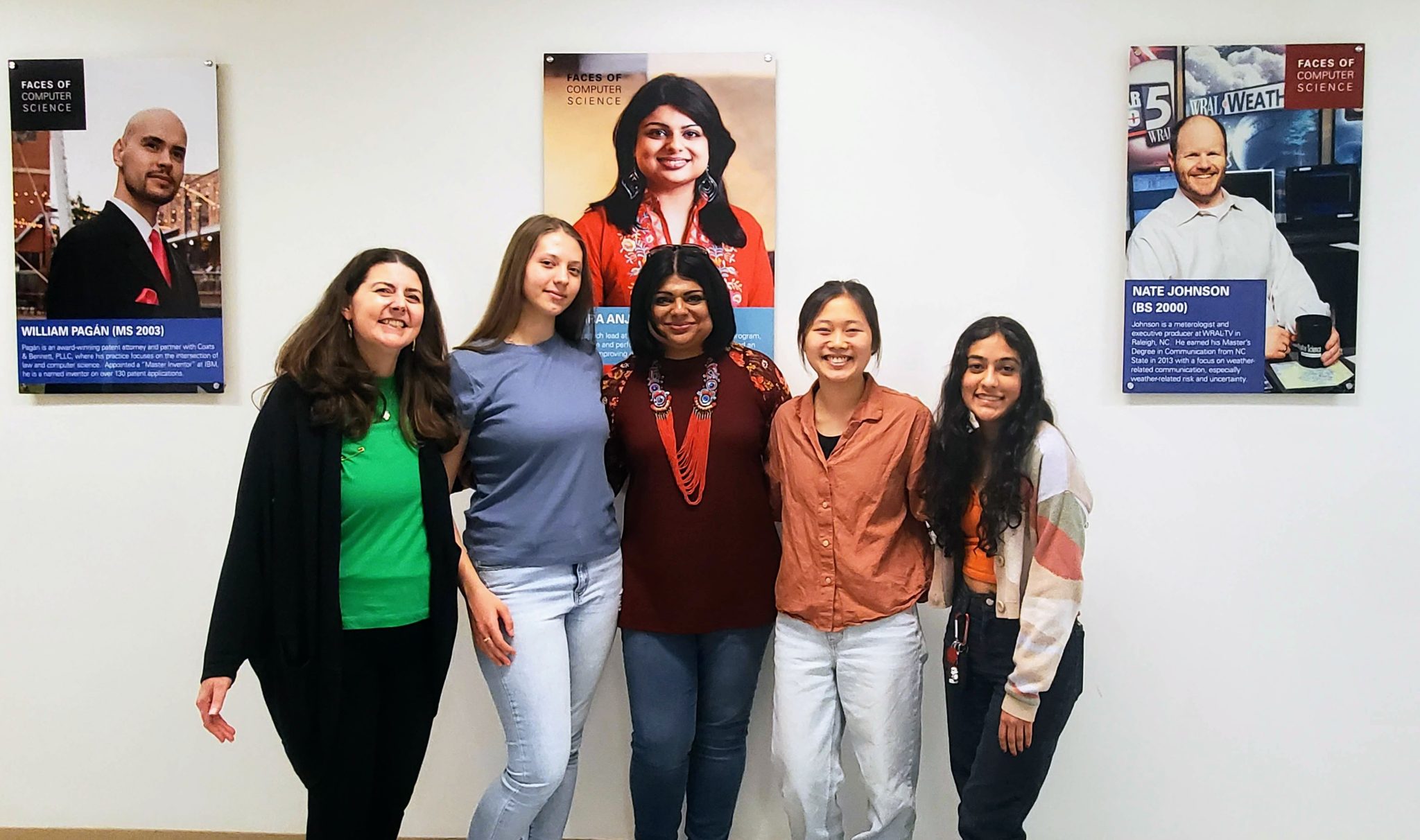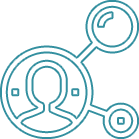We are currently releasing a series of articles containing interviews with Pakistani women who are employed in the technology industry, either locally or globally. Our aim is to showcase their accomplishments and contributions to both the industry and their communities.
These remarkable women are tackling actual problems, defying stereotypes, and making significant advancements in the tech field. The interview series highlights the fact that despite Pakistan having one of the lowest rates of female participation in the job market, there is still a wealth of talented women who are utilizing technology to achieve remarkable outcomes.
Today, we are featuring Bushra Anjum. Read on to learn more about her work and get inspired.
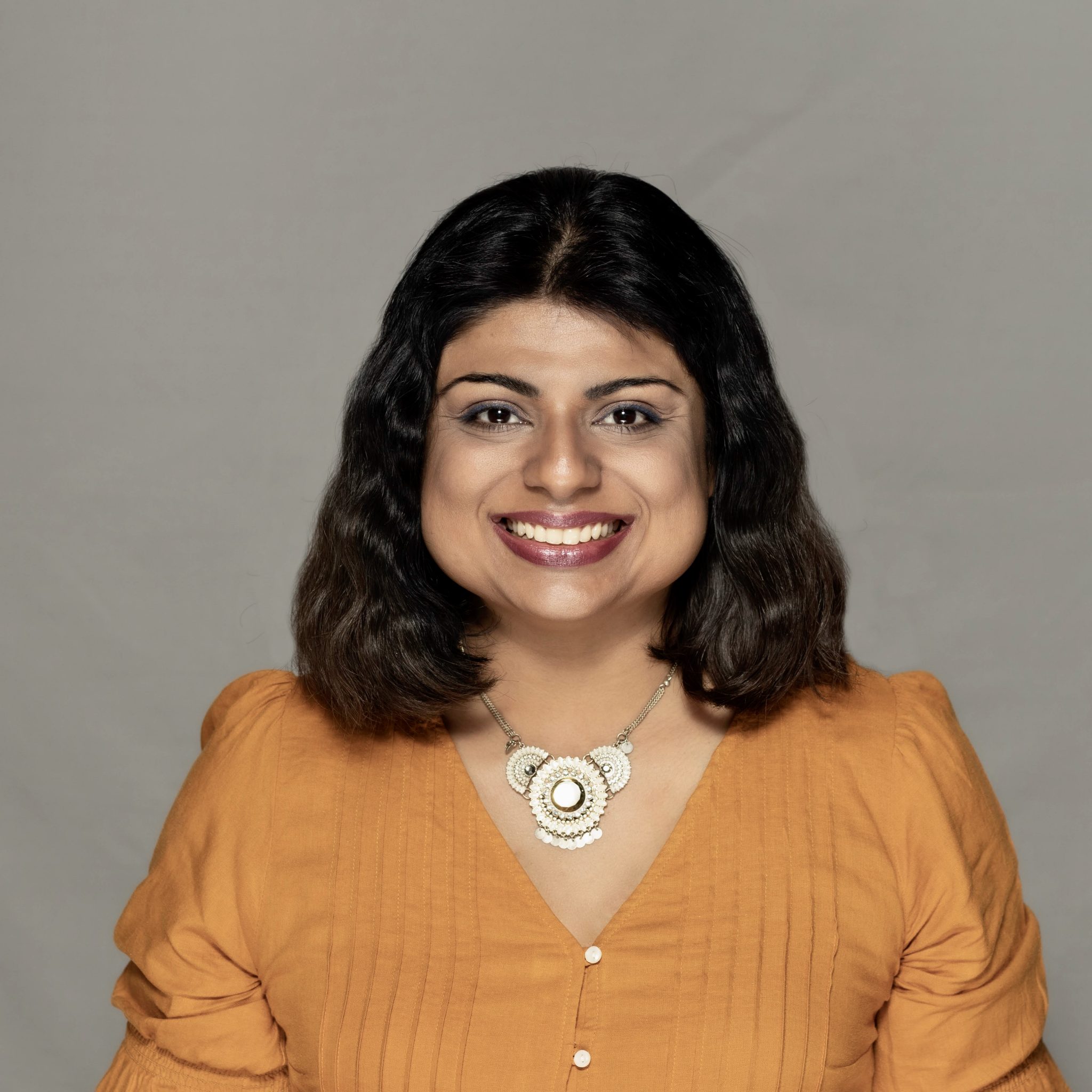
1. Tell us a little about yourself, your background, your education, and your work.
Most of my educational and career choices have been guided by the love of exploring the unknown. After completing MCS from LUMS in 2007, I opted for a Ph.D. degree as it was an ambitious adventure. No one in my family has a Ph.D., and going halfway across the world to earn it made it even more exciting. Hence, I came to the US, studied, and completed my Ph.D. (CS) from North Carolina State University (NCSU) in 2012, with a specialization in performance evaluation and queueing theory.
The next adventure was to teach, and I did so in Pakistan at FAST-NU Lahore and NCSU and Missouri S&T in the US. Then I made the switch to the tech industry. I was curious to explore the world of global technology giants; thus, I joined Amazon. I worked there for four years and learned a great deal about large-scale distributed systems with an emphasis on highly scalable fault-tolerant engineering. Next, I aimed to combine my engineering skills with my love for math, advanced probability, and statistics. Thus the field of Data Science became the perfect candidate. Fueled by my curiosity to learn more about the startup culture, I decided on my next adventure, i.e., joining (and now leading) the Data Science & Analytics team of a San Francisco-based (then startup, now public) company Doximity. This is where I currently am.
2. What are your future plans? How will it impact your work and projects?
Currently, I am working at Doximity as the Director of Data Science & Analytics. Surprisingly, the healthcare system is one of the last benefactors of the digital revolution. Doximity is a digital collaboration platform exclusively for medical professionals, with over 80% of USA doctors as its members. My team, the data department consisting of data analysts, data engineers, and ML engineers, is building out advanced analysis pipelines and prediction models to better support digital fax, appointment and referral, telehealth, continued medical education, and other services for our medical professionals. Our mission is to save doctors time by providing them with digital workflow tools so that they have more time to do what they do best, take care of patients.
At the beginning of 2023, our team released a beta version of a Large Language Model (LLM) powered tool DocsGPT that streamlines mundane administrative tasks for doctors and nurses, such as drafting letters to insurers, appeal denials, and post-procedure instructions for patients. The tool is available to the public for feedback at DocsGPT. Our work got national coverage, including this recent piece in Forbes InnovationRx Newsletter.
It will not be incorrect to say that the team, and Doximity in general, is leading the efforts to bring healthcare systems to the 21st century.
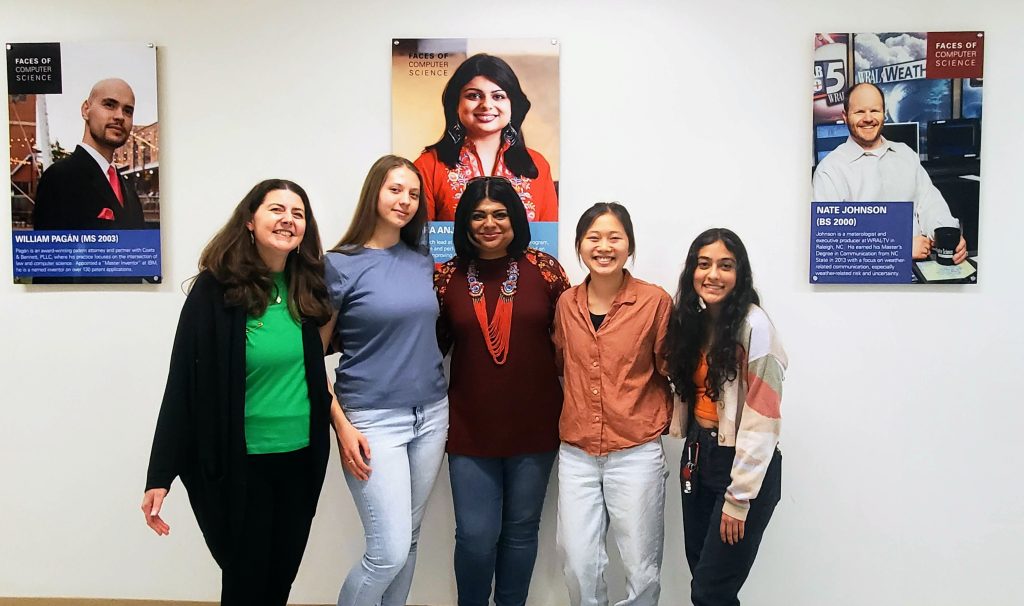
3. Please brag about your career accomplishments. What are the things you are proud of?
I am blessed to have my work and service contributions recognized by several international venues. I have been recognized by Tribune as a Top 20 Under 40 Professional for career excellence with a deep commitment to community service. I received the Distinguished Young Alumni Award (and inclusion in the CSC Alumni Hall of Fame) from NC State University in 2017, recognizing the exemplary contributions its graduates have made to their profession and community to the world at large. I have been nominated as the Volunteer Woman of the Year 2021 by the SLO County Commission on the Status of Women and Girls. When I can find time, I enjoy writing as an Expert Contributor for various technical and social impact initiatives.
However, my selection for the LUMS Vice Chancellor’s Alumni Achievement Award 2019 is a recognition extremely close to my heart. The award email stated, “We are appreciative of how well you have represented and demonstrated the positive impact of our alumni on the communities we serve. Your leadership, commitment, and contributions as an ambassador of LUMS personify values that make us extremely proud of you.” These words are an award in themselves! I acknowledge that wherever I am and wherever I work, I represent my educational institutions. I am also aware that it is both my privilege and responsibility to turn around and make things easier for the next person. I am both humbled and proud that these efforts are getting recognized.
4. What has been your best education/career decision, and why?
Doing a Ph.D. from abroad was one of the best decisions of my life. LUMS is a fantastic institute, second to none. Since I did MCS from LUMS, I was a clear candidate for Ph.D. I knew my work at LUMS would be comparable to that done at any international institution. However, it was the exposure I went for.
While sticking to familiar is comforting, international cross-cultural exposure has distinctive benefits for personal growth. It helps you become a self-aware, responsible adult. It assists you in identifying your unique passion, strengths, and weaknesses. It primes you to understand global scenarios better from different cultural perspectives. The experience has enabled me to live life fully, with an enhanced and broadened vision and a sense of community responsibility. Besides, in today’s hyper-connected, exponentially evolving tech industry, having an international professional network only accelerates your career progress.
5. What’re the best lessons you’ve learned?
Every day, every experience brings with it a new lesson. If I have to pick one, it will have to be to remain open to learning and evolving one’s point of view. Every act of learning requires taking a hit on our ego. That is one of the reasons kids are easier to teach than adults because kids do not yet have their egos blocking their evolution and progress. Remaining open to feedback, learning, and employing a growth mindset are essential skills not only for staying relevant in today’s modern workforce but also for being a productive member of society.
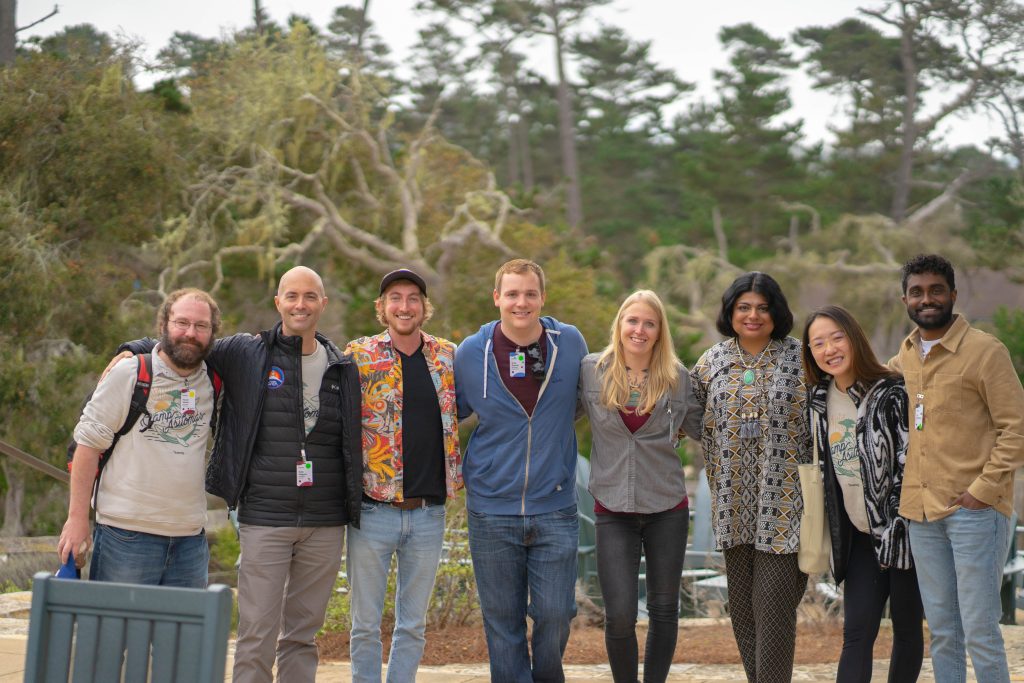
6. Which role model has inspired you and why?
One of the most important figures in my life has been my father. He was my most trusted confidant and advisor. I like to celebrate him at every opportunity as it is from him that I have learned how to empower others. Though he is no more, his words of encouragement, shared repeatedly as we were growing up, are my constant source of strength, even today. I would like to share a few here:
“You are not my or anyone else’s property.”
“Go ahead with it; we will deal with what happens.” (daikhi jaye ge)
“I am very proud of you.”
“These are the risks, but it is your decision. I will support you, no matter which way you go. “
“I trust your judgment.”
7. Do you think Pakistan has changed as a society in terms of accepting career-oriented women? What needs to change to help more women come forward?
Any society that is unclear on the distinction between religion and societal norms will be slow to evolve. But change is inevitable. As far as who needs to change, everyone! I would like my daughter to live in a world where more women are achieving financial independence and, while doing so, paving the way for others behind them. A world where more mothers move beyond the “boys don’t cry” and “don’t be like a girl” mentality when raising their sons, and more fathers support their daughter’s ambitions and life choices rather than fearing “what will people think.” And finally, a world where more men move from being bystanders to actively breaking bias when others make derogatory comments about women, not letting them get away with the “it’s only a joke, lighten up” excuse. For it is never a joke, it is always veiled disrespect and deep-rooted bias.
8. What will be the biggest challenge for the generation of women behind you?
The biggest challenge for my generation and the next is maintaining a balanced perspective. We all need to stand up to intolerance without becoming conceited and judgmental. We need to learn to respect choices. There are only a few exceptional choices that may be considered wrong, and that’s where the law of the land comes in. Other than that, it’s a matter of personal preference. If a woman chooses to be a homemaker, more power to her. If a woman chooses to prioritize a career, let it be her choice if a man chooses to have a beard and dress in shalwar kameez, good for him. If a man chooses to learn cooking or is interested in painting, let him be. We need to stop putting people in boxes, both men and women and let them make their own choices.
9. What would it be if you could change one thing about the tech industry?
Continuing from one of my previous responses, I hope men, for the sake of their sisters, daughters, female family members, and friends – this generation and generations to come – will make their existing workplace more equitable for women. I hope they will stand up for their female colleagues when other male colleagues deem them less competent. I hope they will intervene when their male colleagues discuss or treat their female colleagues in less than respectful ways. I hope they will not be a silent bystander but take responsibility and help stop these professionally and emotionally damaging situations for their female colleagues. I hope they will shift the “norms.”
10. How can WomenInTechPK help you and other women?
The statistics indicate the lack of women in tech is a global issue. Techfunnel’s report on “The Latest Women in Tech Statistics to Know in 2023” states that large worldwide tech enterprises would have a female presence of about 33%. We are stuck in a vicious cycle where young women do not opt for technology careers because they do not find role models, and there are limited role models because women are not entering the technology field. We all need a role model, someone to look up to for inspiration and reach out to for guidance. A British documentary maker summarized this perfectly: “If she does not see it, she can’t be it.” There are numerous trailblazing women in technology. However, they do not get their fair share of visibility. We need to get better at promoting women leaders and technologists in media. I am extremely appreciative of the initiatives taken by WomenInTechPK in this regard. In the future, you can possibly consider collaborating with local print and electronic media to have a weekly or monthly section featuring these women to give them even broader visibility. Thank you so much for giving me the opportunity to share my thoughts.
You can follow Dr. Bushra Anjum using her profile(s) below, and please do not hesitate to hire her for your next project.
Contact: https://www.bushraanjum.info/contact
Website: https://www.bushraanjum.info/
LinkedIn: https://www.linkedin.com/in/bushraanjum/
Twitter: https://twitter.com/DrBushraAnjum
ProWomen Profile: https://www.prowomen.pk/bushra-anjum

